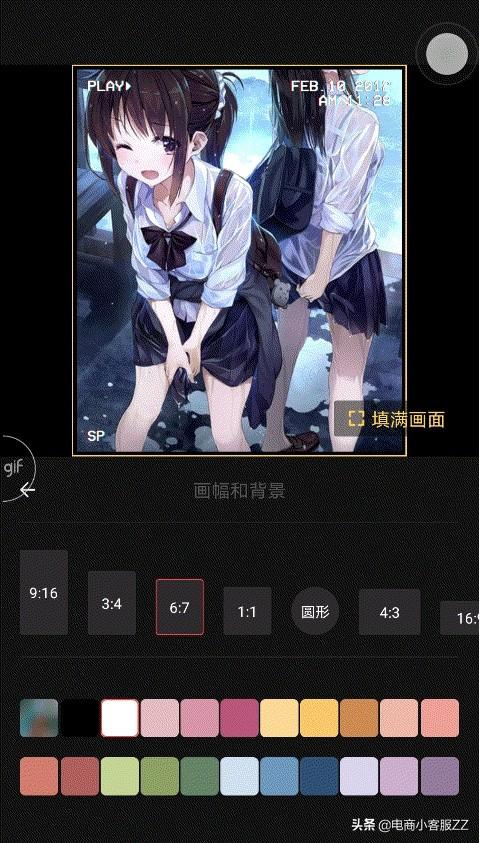Enfortumab vedotin(EV)是一种抗体药物偶联物(ADC),是研究者开发的首个靶向nectin-4蛋白的药物。
2
021年7月,EV获FDA批准用于既往接受过PD-1/PD-L1免疫检查点抑制剂(ICI)和含铂化疗的复发或难治性晚期/转移性尿路上皮癌患者。
Nectin-4靶向药物的开发还处于起步阶段,除了EV,其他药物处于临床前阶段或非常早期的临床开发阶段。研究者对这一靶点的浓厚兴趣反映了nectin-4在多种恶性肿瘤中的潜在致癌作用。
Nectin-4或具有抗肿瘤免疫作用,多种药物在研发
Nectin蛋白家族可通过与包括TIGIT(具有免疫球蛋白和ITIM结构域的T细胞免疫受体)在内的免疫检查点受体相互作用。研究者认识到nectin蛋白在抗肿瘤免疫反应中也发挥一定的作用。
大多数正在进行的nectin-4靶点相关的临床试验都涉及EV及其与免疫检查点抑制剂(ICI)联合的潜在协同作用,其他几项在实体瘤中的新药研究见下表。
表 正在进行的Nectin-4靶点相关临床研究
理想的靶标
“Nectin”来源于拉丁语necto,意为“连接”,nectin是一种细胞粘附分子,它在相邻细胞之间形成物理连接,对于实现细胞间通讯、迁移和其他重要细胞过程至关重要。
在4种人类nectin蛋白中,nectin-4的独特之处在于其表达主要局限于胎盘和胚胎组织。重要的是,与正常成人组织相比,多个类型肿瘤细胞nectin-4高表达。
有两项研究分别显示,60%膀胱癌样本和34%上尿路尿路上皮癌样本可见中高水平nectin-4蛋白表达。在上尿路尿路上皮癌中,nectin-4蛋白高表达与疾病进展明显升高(P=0.03)和癌症特异性死亡率(P=0.04)相关,并且nectin-4是高危患者疾病进展的独立预测因子(HR=3.32,P=0.03)。
Nectin-4在多个癌种中过表达,包括乳腺癌、卵巢癌、宫颈癌、结直肠癌、食管癌、胃癌、肺癌、肝癌和甲状腺癌。研究提示,nectin-4的表达是多个瘤种的不良预后因子。但是,临床有效性尚未完全确定。
在某些瘤种中,nectin-4高表达与肿瘤大小、等级和侵袭性以及患者存活率降低相关。此外,nectin-4过表达也可能与化疗耐药有关。最近的一项研究还表明,BRAF抑制剂耐药黑色素瘤细胞中nectin-4表达上调。
目前,晚期尿路上皮癌患者的一线治疗标准是铂类化疗,但是,相当多患者不适合化疗。PD-L1阳性晚期尿路上皮癌患者可以选择免疫治疗,但只有少数患者会出现持久反应,此外,免疫治疗在内脏转移患者中的有效率也很低。
因肿瘤细胞的特异性表达,nectin-4已成为一个极具前景的治疗靶点。目前nectin-4相关药物开发的主要聚焦于晚期尿路上皮癌。
尿路上皮癌患者的新选择
EV,由连接子将nectin-4靶向单克隆抗体和破坏微管的细胞毒药物MMAE偶联而成(下图)。一旦EV中的nectin-4抗体成分与膜上的nectin-4结合,EV就会被吸收进入到细胞中,而连接子将被溶酶体溶解,释放出的MMAE将与微管结合,破坏微管组装并驱动细胞周期停滞和细胞凋亡
图 EV结构与组成
基于EV-101和EV-201研究,2019年EV获FDA批准用于局部晚期或转移性尿路上皮癌的治疗。
EV-101是EV用于经治晚期实体瘤的1期剂量递增和剂量扩展研究。队列A中,患者在每周期(28天)的第1、8和15天接受EV单药治疗,剂量递增至1.25mg/kg。队列B在尿路上皮癌、非小细胞肺癌或卵巢癌3个患者群体中进行了剂量扩展。队列C探索了转移性尿路上皮癌患者免疫治疗进展后进行EV剂量扩展的疗效。
在接受EV(1.25mg/kg)治疗的112例转移性尿路上皮癌患者中,总缓解率(ORR)为43%,中位缓解持续时间(DOR)为7.4个月,中位总生存期(OS)为12.3个月。在所有患者亚组中均观察到类似的有效率,包括75岁及以上患者、肝转移患者和上尿路疾病患者。最常见的治疗相关不良事件(TRAE)是皮疹、周围神经病变、疲劳、脱发和恶心,主要为1级或2级不良事件。
EV-201是一项II期单臂试验,转移性尿路上皮癌患者既往接受过铂类化疗和ICI(队列1)或仅接受过ICI(队列2)治疗。患者在每周期(28天)的第1、8和15天接受EV治疗(1.25mg/kg)。Nectin-4阳性不是入组必要条件,但在入组的120个患者样本中,nectin-4表达均为阳性,中位IHC评分为290。
队列1(n=125)患者的ORR为44%,其中,12%患者达到完全缓解(CR),中位DOR为7.6个月。在亚组患者中观察到类似的ORR,包括肝转移亚组。最常见的TRAE是疲劳、脱发、食欲下降、味觉障碍和周围神经病变。队列2(n=89)的结果显示,中位随访13.4个月时,ORR为52%,其中,20%患者达到CR。
EV获得全面批准
EV的疗效在III期随机研究中得到了进一步证实。EV-301纳入既往接受铂类化疗和ICI治疗的局部晚期或转移性尿路上皮癌患者(n=608),在每周期(28天)的第1、8和15天给予患者EV或每周期(21天)的第1天给予研究者选择的化疗(多西他赛,n=117;紫杉醇,n=112;或长春氟宁,n=78)。
中位随访11.1个月时,与化疗相比,EV可显著改善患者OS和无进展生存期(PFS),EV组和化疗组的中位OS分别为12.88个月和8.97个月(HR=0.70,P=0.001),中位PFS分别为5.55个月和3.71个月(HR=0.62,P<0.001),EV组和化疗组的ORR分别为40.6%和17.9%(P<0.001),CR率分别为4.9%和2.7%。
2021年ESMO大会上的更新结果显示,EV同样可使难治性亚组患者取得生存获益,包括65岁及以上、肝转移、上尿路疾病以及对ICI治疗不应答患者。
目前正在进行多项临床研究,研究人员正在评估EV用于转移性尿路上皮癌(EV-302;NCT04223856)一线治疗的疗效,以及EV用于围手术期(VOLGA;NCT04960709和EV-304;NCT04700124)的疗效。
EV-103是一项I/II期临床研究,旨在评估EV单药或联合其他药物用于晚期尿路上皮癌的疗效。2年多的随访结果显示,EV+帕博利珠单抗用于45例不适合顺铂治疗的晚期尿路上皮癌一线治疗时,ORR达到73.3%,其中,17.8%患者达到CR,中位DOR为25.6个月,中位PFS为12.3个月。在肝转移患者中,ORR为57.1%。最常见的TRAE是周围神经病变、疲劳和脱发。
基于此,该联合疗法获FDA突破性疗法认定,用于不适合顺铂治疗的晚期尿路上皮癌的一线治疗。
nectin-4的免疫调节作用
另外,nectin家族成员在免疫调节中的作用也得到认可。几种nectin和nectin样(Necl)分子作为共刺激配体和共抑制免疫检查点受体,近年来,nectin家族成员的研究已扩展这些受体,最著名的是TIGIT。
TIGIT是一种在多种免疫细胞类型表面表达的共抑制免疫检查点受体,具有免疫抑制功能。除了共刺激受体CD226,TIGIT还形成了一个类似于CD28/CTLA-4的检查点通路。TIGIT的配体包括CD112(也称为nectin-2)和CD155(Necl-5)。
TIGIT已成为下一代免疫检查点抑制剂的潜在靶标。几种靶向TIGIT的药物正在临床开发中,包括tiragolumab(MTIG719A)和vibostolimab(MK-7684))。最近的一项研究显示,nectin-4可作为TIGIT的新型配体。与其他TIGIT配体不同的是,nectin-4似乎只与TIGIT结合。这种相互作用被证明可以抑制自然杀伤细胞的活性。
除了在肿瘤靶向方面提供特异性外,nectin-4靶向疗法还具有免疫治疗特性。大多数正在进行的EV和新型nectin-4靶向疗法的开发都探索了与ICI联合的效果,以期产生协同作用。
参考文献
FDA grants regular approval to enfortumab vedotin-ejfv for locally advanced or metastatic urothelial cancer. FDA. Updated July 9, 2021. Accessed October 8,
2021. https://www.fda.gov/drugs/resources-information-approved-drugs/fda-grants-regular-approval-enfortumab-vedotin-ejfv-locally-advanced-or-metastatic-urothelial-cancer
FDA grants accelerated approval to enfortumab vedotin-ejfv for metastatic urothelial cancer. FDA. Updated December 19, 2019. Accessed October 13, 2021. https://www.fda.gov/drugs/resources-information-approved-drugs/fda-grants-accelerated-approval-enfortumab-vedotin-ejfv-metastatic-urothelial-cancer
3Chatterjee S, Sinha S, Kundu CN. Nectin cell adhesion molecule-4 (NECTIN-4): a potential target for cancer therapy. Eur J Pharmacol. 2021;911:174516. doi:10.1016/j.ejphar.2021.174516
Heath EI, Rosenberg JE. The biology and rationale of targeting nectin-4 in urothelial carcinoma. Nat Rev Urol. 2021;18(2):93-103. doi:10.1038/s41585-020-00394-5
Johnston RJ, Lee PS, Strop P, Smyth MJ. Cancer immunotherapy and the nectin family. Ann Rev Cancer Biol. 2021;5:203-219. doi:10.1146/annurev-cancerbio-060920-084910
Challita-Eid PM, Satpayev D, Yang P, et al. Enfortumab vedotin antibody–drug conjugate targeting nectin-4 is a highly potent therapeutic agent in multiple preclinical cancer models. Cancer Res. 2016;76(10):3003-3013. doi:10.1158/0008-5472.CAN-15-1313
Tomiyama E, Fujita K, Rodriguez Pena MDC, et al. Expression of nectin-4 and PD-L1 in upper tract urothelial carcinoma. Int J Mol Sci. 2020;21(15):5390. doi:10.3390/ijms21155390
Fabre-Lafay S, Monville F, Garrido-Urbani S, et al. Nectin-4 is a new histological and serological tumor associated marker for breast cancer. BMC Cancer. 2007;7:73. doi:10.1186/1471-2407-7-73
Bekos C, Muqaku B, Dekan S, et al. NECTIN4 (PVRL4) as putative therapeutic target for a specific subtype of high grade serous ovarian cancer—an integrative multi-omics approach. Cancers (Basel). 2019;11(5):698. doi:10.3390/cancers11050698
Takano A, Ishikawa N, Nishino R, et al. Identification of nectin-4 oncoprotein as a diagnostic and therapeutic target for lung cancer. Cancer Res. 2009;69(16):6694-6703. doi:10.1158/0008-5472.CAN-09-0016
Nayak A, Das S, Nayak D, Sethy C, Narayan S, Kundu CN. Nanoquinacrine sensitizes 5-FU-resistant cervical cancer stem-like cells by down-regulating nectin-4 via ADAM-17 mediated NOTCH deregulation. Cell Oncol (Dordr). 2019;42(2):157-171. doi:10.1007/s13402-018-0417-1
Deng H, Shi H, Chen L, Zhou Y, Jiang J. Over-expression of nectin-4 promotes progression of esophageal cancer and correlates with poor prognosis of the patients. Cancer Cell Int. 2019;19:106. doi:10.1186/s12935-019-0824-z
Lin X, Hu H, Pan Y, Gao S. The prognostic role of expression of nectin-4 in esophageal cancer. Med Sci Monit. 2019;25:10089-10094. doi:10.12659/MSM.918288
Tanaka Y, Murata M, Shen C-H, Furue M, Ito T. Nectin4: a novel therapeutic target for melanoma. Int J Mol Sci. 2021;22(2):976. doi:10.3390/ijms22020976
Halford Z, Anderson MK, Clark MD. Enfortumab vedotin-ejfv: a first-in-class anti–nectin-4 antibody-drug conjugate for the management of urothelial carcinoma. Ann Pharmacother. 2021;55(6):772-782. doi:10.1177/1060028020960402
Rosenberg J, Sridhar SS, Zhang J, et al. EV-101: a phase I study of single-agent enfortumab vedotin in patients with nectin-4-positive solid tumors, including metastatic urothelial carcinoma. J Clin Oncol. 2020;38(10):1041-1049. doi:10.1200/JCO.19.02044
Rosenberg JE, O’Donnell PH, Balar AV, et al. Pivotal trial of enfortumab vedotin in urothelial carcinoma after platinum and anti-programmed death 1/programmed death ligand 1 therapy. J Clin Oncol. 2019;37(29):2592-2600. doi:10.1200/JCO.19.01140
Yu EY, Petrylak DP, O’Donnell PH, et al. Enfortumab vedotin after PD-1 or PD-L1 inhibitors in cisplatin-ineligible patients with advanced urothelial carcinoma (EV‑201): a multicentre, single-arm, phase 2 trial. Lancet Oncol. 2021;22(6):872-882. doi:10.1016/S1470-2045(21)00094-2
Powles T, Rosenberg JE, Sonpavde GP, et al. Enfortumab vedotin in previously treated advanced urothelial carcinoma. N Engl J Med. 2021;384(12):1125-1135. doi:10.1056/NEJMoa2035807
Rosenberg JE, Powles T, Sonpavde GP, et al. Analysis of hard-to-treat subgroups from EV-301: a phase III trial of enfortumab vedotin (EV) vs chemotherapy for previously treated advanced urothelial carcinoma. Ann Oncol. 2021;32(suppl 5):S710-S711. doi:10.1016/j.annonc.2021.08.094
Friedlander TW, Milowsky MI, Bilen MA, et al. Study EV-103: update on durability results and long term outcome of enfortumab vedotin + pembrolizumab in first line locally advanced or metastatic urothelial carcinoma (la/mUC). J Clin Oncol. 2021;39(suppl 15):4528. doi:10.1200/JCO.2021.39.15_suppl.4528
Rosenberg JE, Flaig TW, Friedlander TW, et al. Study EV-103: preliminary durability results of enfortumab vedotin plus pembrolizumab for locally advanced or metastatic urothelial carcinoma. J Clin Oncol. 2020;38(suppl 6):441. doi:10.1200/JCO.2020.38.6_suppl.441
Astellas and Seattle Genetics receive FDA breakthrough therapy designation for Padcev (enfortumab vedotin-ejfv) in combination with pembrolizumab in first-line advanced bladder cancer. News release. Astellas Pharma Inc; February 20, 2020. Accessed October 12, 2021. https://www.astellas.com/en/news/15601

Chauvin JM, Zarour HM. TIGIT in cancer immunotherapy. J Immunother Cancer. 2020;8(2):e000957. doi:10.1136/jitc-2020-000957
Rigby M, Beswick P, Mudd G, et al. Abstract 4479: BT8009: a bicyclic peptide toxin conjugate targeting nectin-4 (PVRL4) displays efficacy in preclinical tumor models. Cancer Res. 2019;79(suppl 13):4479. doi:10.1158/1538-7445.AM2019-4479








